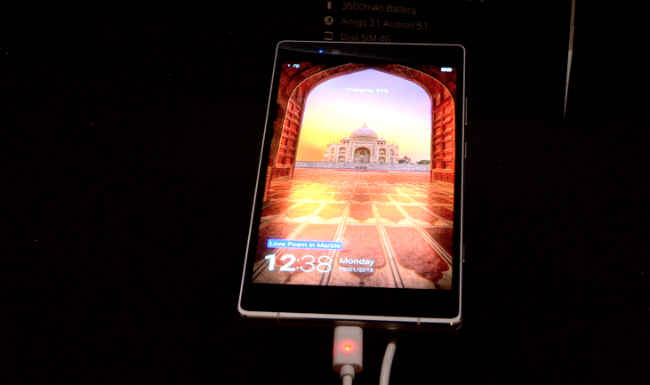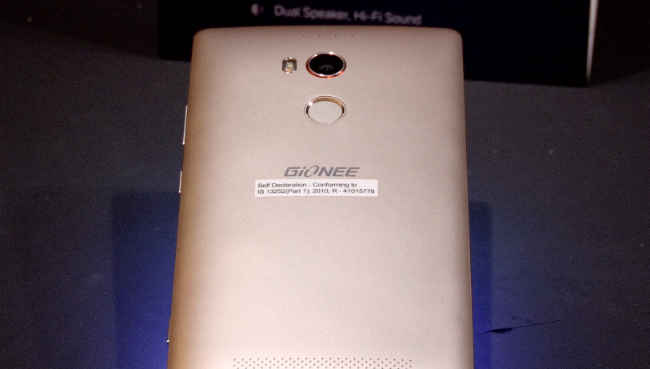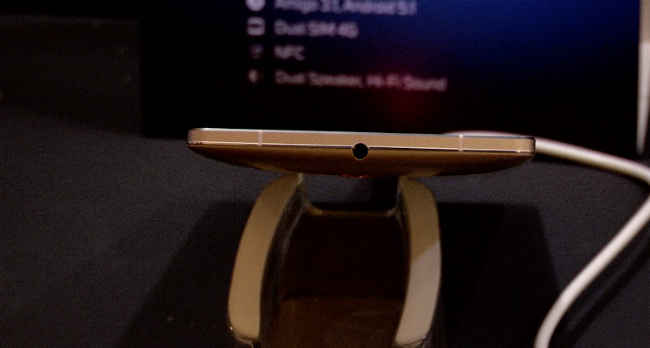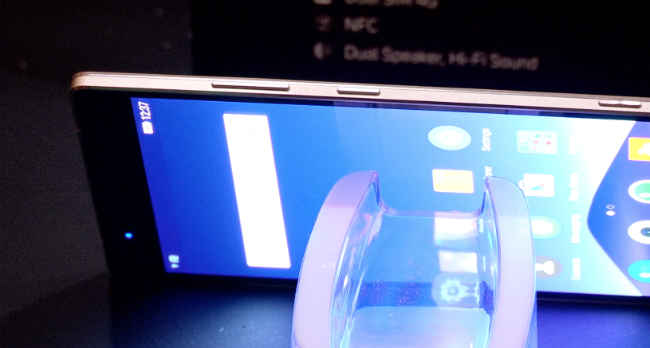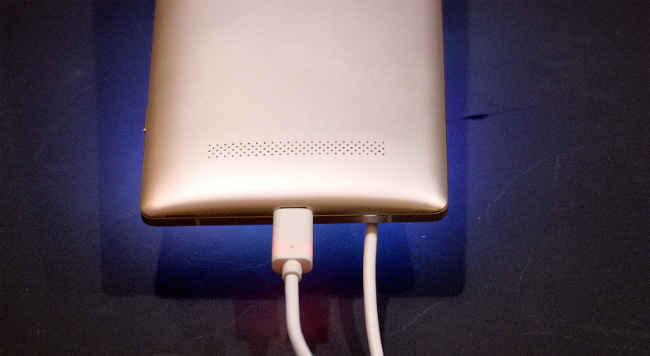Gionee Elife E8: First impressions
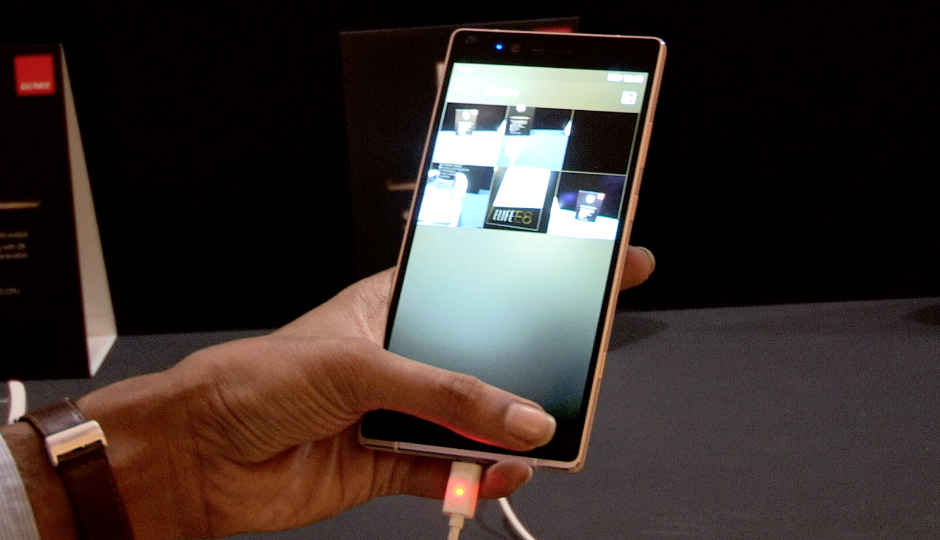
The Gionee Elife E8 forays into the premium section, packing in exterme specifications. But, is a 6-inch display too big to be called a smartphone?
It's been a while since the battle for the highest specifications has been over. The present war among smartphone-makers is pricing (excuse Sony, Samsung and Apple from here, of course). With the new Elife E8, Gionee is trying to get its own share of users in the 'premium smartphone' section. Unveiled on June 10 in Beijing, Gionee took its time to get the Elife E8 to India. We had first seen the device at MWC, Shanghai some months ago, and got another peek at the device at its India launch today. And here are our very first impressions of the Gionee Elife E8.
The large size of the phone does not favour one-handed usage
Specifications-wise, the Gionee Elife E8 is unwieldy in size and weight. Weighing over 200 grams and with six inches of screen size, the Elife E8 sounded formidable on paper. In actuality, it did not feel 200 grams, but was definitely on the heavier side. At 9.6mm, it is reasonably slim, but one-handed usage is totally out of the question. In fact, I found taking photographs with one hand very difficult, and anyone with smaller palms will find it completely impossible. Gionee has managed to keep the bezels restricted, and a front screen area of 74% is definitely a decent utilisation of the total area that the Elife E8 occupies. However, we could not find an option to enable backlight on the multifunction, home and return keys. That, coupled with the somewhat faint indication of the keys, made it difficult for me to operate the phone in the dark.
The back houses the new OmniVision camera and the fingerprint sensor
The build quality is decent, and the all-metal body feels good to hold. Once you get over the size, the Elife E8 does look like a premium device on first sight. The back houses the fingerprint sensor and the rear camera, which Gionee is putting a lot of limelight on. Other arrangement is standard – volume and power keys to the right, USB port at the bottom, and audio jack on top. There is also a camera button on the right side of the device, placed on the lower right side. Despite the metal build feeling neat in hand, it is not really the most attractive looker. Nevertheless, it does feel like a sturdy device, and that should instill confidence among users.
The phone is 9.6mm slim – not bad, for such a large device
What I like about the Gionee Elife E8 is the complete overall package that it has tried to offer. A 6-inch 2K AMOLED display, MediaTek Helio X10 chipset, 3GB of DDR3 memory, 64GB of internal storage, a 23.8-megapixel OmniVision OV23850 camera, 8-megapixel OmniVision OV8865 front camera, and a 3520mAh battery pack. The OmniVision sensor used in the rear camera was demonstrated at Qualcomm's LTE Summit in Hong Kong. We were impressed by all that it had to offer, and while Gionee's attempt to convince everyone of its prowess ended up with photographer Raghu Rai appearing on stage, we went ahead and clicked a few photographs with the Elife E8 in pathetically-lit and rudely jostled conditions. Of course, the camera will perform better once we get to use it in more peaceful places, but I was quite impressed by the quality that it returned. What I wasn't impressed by was the slow shutter response. In a smartphone that otherwise felt fantastically fast and zippy, the camera application seemed too slow to handle all the firepower that the Elife E8 possesses.
The right side hosts all the controlling buttons
Gionee stated at the event that the custom Amigo UI v3.1 has been customised for India. While that essentially translates to a few pre-installed applications, the UI in itself is not too bad. At times, it looked close to Meizu's Flyme OS v4.5, but that might just be my personal opinion. Unfortnately though, Amigo UI is much, much better in the non-Google Chinese versions of Gionee's phones.
The unibody metal gives a premium feel to the phone
Overall, the Gionee Elife E8 seemed like a fairly competent smartphone, upon first impression. It is fast, and apart from the shutter lag and the large footprint, it seemed like a smooth device. Even within these flaws, the good quality images and the decently bright display has the potential to make this phone a pretty good offering, at Rs. 34,999. We will wait for our final review of the Gionee Elife E8, to give the final verdict.

